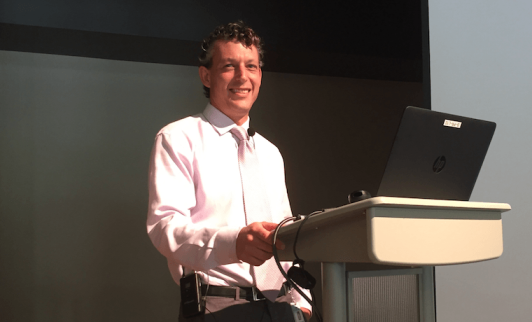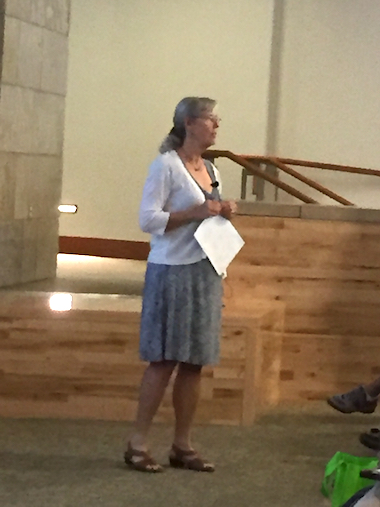Talking to Your Doctor About End-of-Life Care
- Category: General, About Us, Patients & Visitors, Primary Care
- Posted On:
- Written By: Boulder Community Health

Some of the most important — and most difficult — conversations you'll ever have are about your wishes for end of life. Talking with your loved ones is an important first step in making your wishes known. But it’s also essential for your doctor to understand your priorities for end-of-life care.
During a free health lecture held on Aug. 31 at the Boulder Jewish Community Center, BCH ethics committee member Jean Abbott, MD, and BCH medical director of quality and population health Ben Keidan, MD, broached the topic of why you should talk with your doctor about your final days and how to go about it.
"It's essential for both your family and doctor to understand your priorities for end-of-life care. We want to take your wishes into account, but we'll never know if you don't tell us," Dr. Keidan told the crowd of 200 lecture attendees. "At the heart of these kinds of conversations is finding out what matters most to you."

He added, "It's also essential to designate a medical power of attorney who understands your priorities."
Not One, But Many Conversations
Many people avoid talking about end-of-life treatment because it's extremely difficult to do. In fact, one study found that only 7 percent of people have talked about what is important to them with their doctors.
Keep in mind that "the conversation" with your doctor usually ends up being a series of conversations — all of which become easier once you start. You can initiate the first conversation at your next wellness or routine office visit. But you don't need to cover everything right then. Later, you can schedule more lengthy discussions during what are called advanced care planning appointments.
Another thing to keep in mind is that what matters most to you for end-of-life care can change over time. So the conversation with your family and your doctor needs to be ongoing.

"We aren't good at predicting what we might want in the future. Life is uncertain and circumstances change, our values can change. That's why it's important to keep having these conversations," said Dr. Abbott.
How Do You Prepare Yourself?
As you get ready for your end-of-life conversations, start thinking about what matters most to you such as:
- Who would you want to make medical decisions for you if you couldn't?
- What kinds of treatment would you want or not want (for example, resuscitation if your heart stops, breathing machine, feeding tube)?
- How long do you wish to receive medical care?
- Where would you want or not want to receive care (at home, in a nursing facility, in a hospital)?
- Do you want your doctor to continue to treat your condition aggressively or back off if you are in a situation where recovery is unlikely?
- When would it be okay for your doctor to shift from a focus on treatment to a focus on comfort care alone?
"There are no correct answers to these questions, but knowing your limits can help your doctor tailor treatments that maintain your desired quality of life," Dr. Abbott said. "Make sure these wants and priorities are included in your medical record in case you're unable to decide for yourself, as well as who should speak for you if you can't."
It's also important to express your fears and worries.
"I'm always struck by how many patients worry about receiving too much or too little care. Talking this over with your family and doctor can give them a better idea of what you would want," Dr. Keidan added.
Take the time now to plan for your future. Schedule an advance care planning appointment with your doctor.
If you are a Medicare beneficiary, Medicare will cover an appointment for advance care planning.
Click here to view PowerPoint slides from Drs. Abbott and Keidan's lecture on “Talking to Your Doctor About End of Life Care.”